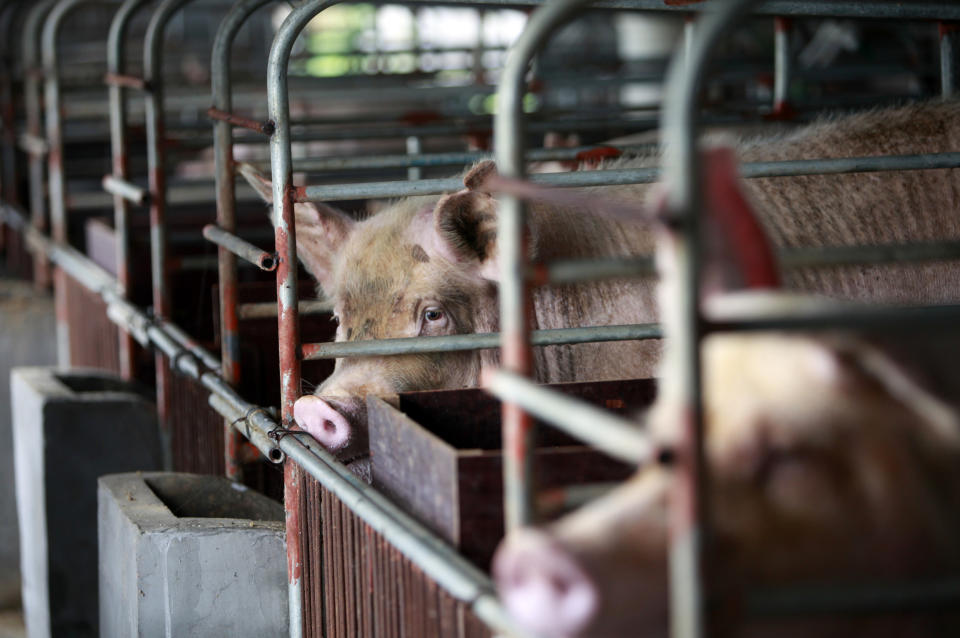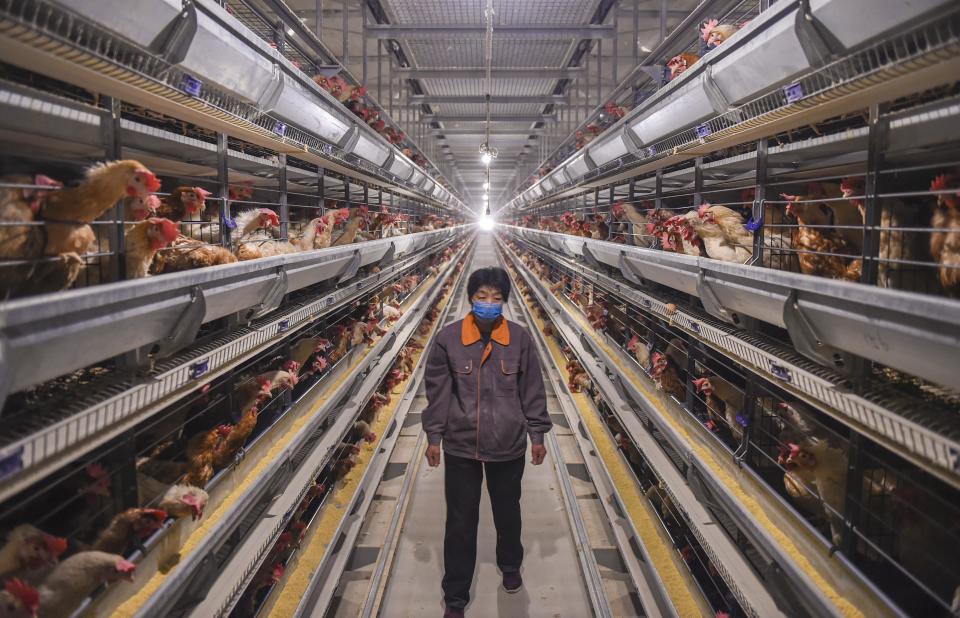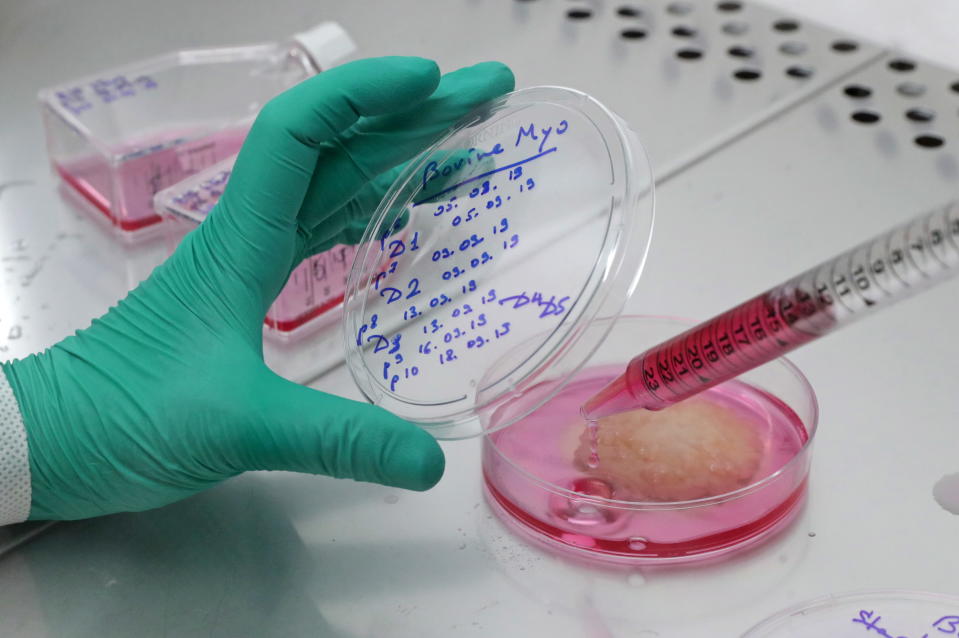How Chinese farmers could prevent the next pandemic, experts reveal
Reducing animal stress in China could be key to preventing future pandemics like the coronavirus according to an Australian expert.
When animals are under physical or emotional strain, they become more susceptible to disease and it doesn’t matter if they’re in a wet market or a farm.
To understand how animal welfare results in disease susceptibility, Professor Clive Phillips from the Centre for Animal Welfare and Ethics at the University of Queensland, suggests we look to a human example.
“Why do students all get sick before they do their exams? They’re stressed,” he said.
“The stress depletes the immune system, so viruses can take hold easily.”

Call for China to adopt animal welfare laws
Professor Phillips has worked alongside organisations including the Open Philanthropy Project to help improve animal welfare in China.
China has modernised its farming systems relatively recently compared to western economies like Britain and Australia who intensified their farming in the 1960s.
Large farms have been built across China over the last decade to satisfy the country’s 1.4 billion citizens’ transition from a largely vegetarian diet to one rich in animal protein.
While China has converted to new farming technologies quickly, Professor Phillips is concerned that China has not developed animal protections to coincide with the change.
“(China) don’t have animal welfare laws to protect the animals in intensive farming systems, which most of the rest of the world does,” Professor Phillips said.

“They have some animal husbandry standards which are non-mandatory and they’re not focused on animal welfare.”
“A lot of the standard practices which are there to protect animals in say European systems, say animals having to be stunned before they’re slaughtered, they’re not there in the Chinese system and as a result, I believe that the welfare of quite a lot of the animals is not particularly good.
“Therefore the immune system is further depleted which gives great opportunity for zoonosis to arise.”
Zoonosis is a disease which can be transmitted to humans from animals.
Growing awareness of animal welfare in China
Dr Pan Wang, Senior lecturer in Chinese studies at the University of NSW believes there is a growing awareness about animal rights in China.
She notes that in Chinese society, there are “two forces” at play when it comes to animal welfare.
During SARS and COVID-19 a lot of people discarded their pets due to fears they would pass the virus onto them, however at the same time others on WeChat are openly pushing for animal protections.

“Animal rights activists in China are protesting and advocating for animal rights and that’s influenced by the west,” she told Yahoo News Australia.
“Although the government hasn’t implemented formal laws to protect the animals in farms, more and more, people are thinking about that, and there is more and more discourse about that.”
“For each law and regulation there are rigorous procedures and it takes a long time before the formal implementation of the law.
“Soon, in the future, the law will emerge, but not right now.”
‘An accident waiting to happen’
Professor Phillips is concerned that much of the discourse surrounding the coronavirus is too focused on the immediate, and that policymakers need to be looking at how to prevent future pandemics.
“I don’t keep up to date with all the human mortality figures,” he said.
“What interests me is what have we done wrong and how are we going to address it in the future.
“It would be so tempting to just step back in because there is so much money at stake.”

Coronavirus is just one of many zoonotic diseases that have affected the globe, including SARS, MERS, HIV and ebola, but this year’s global shutdown has been unprecedented.
Professor Phillips was not surprised by the outbreak of COVID-19, he and a number of researchers believed it was only a matter of time.
Coronavirus: The story behind WHO's 'puzzling' wet markets decision
Dangerous coronavirus myth leads to unexpected dog meat demand
'Streets of horror': Wildlife trade continues despite coronavirus warning
“(COVID-19) was an accident waiting to happen,” he said.
“The way we managed our animal production systems and wildlife consumption I think it was just bound to happen.
“It’s happened several times recently, but this one is a lot worse and it will happen again.”
Improved animal welfare may not be the solution
Dr Wang explains that for older generations in China, the standard salutation is still “Have you eaten?”.
“That sentence really alludes to the importance of food to the older generation who have experienced that period of crisis,” she said.
This greeting likely grew to prominence during the famines which occurred amid the rise of communism and the Great Leap Forward.
Dr Wang believes that while many young people rely on takeaway and have no connection with their food production, older citizens still remember what it was like to go without.

With sustainable sources of protein key to China’s growth, Professor Phillips believes that meat substitutes could provide the solution.
Ultimately they could provide food security in China and lessen the impact of zoonotic diseases before animal welfare laws are introduced into the country’s agriculture sector.
With China already importing expensive livestock fodder from the US and Brazil, feeding an ever growing herd may not be sustainable, and meat alternatives are likely to become enticing.
The world’s largest beef producers including Tyson, Smithfield, Perdue and Hormel have embraced the change and are all investing in plant based alternatives.
Lab grown ‘clean meat’ could become a viable alternative in the next five to 10 years.
Do you have a story tip? Email: newsroomau@yahoonews.com.
You can also follow us on Facebook, Instagram and Twitter and download the Yahoo News app from the App Store or Google Play.





